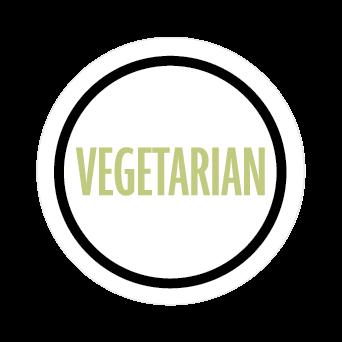

AT SCAD SAVANNAH




Dining on Campus
Allergen Management on Campus
Your Food Allergy Resources
Food Allergies & Celiac Disease
Your Allergen Management
In Case of a Reaction
Quality Assurance on Campus
Food Safety Training
Foodborne Illness Response
Meal Plan Exemptions
Contacts
For menus, café hours, and more information on food allergies, intolerances, and special diets, go to scad.cafebonappetit.com.


At Bon Appétit, we plan café specific menus and cook from scratch in each location. From simmering stocks to finishing sauces and roasting meats, our approach to food allows us to provide fresh foods from whole ingredients. This allows students to customize many cafe options to meet their personal dietary goals. We would love to hear from you and can assist you in identifying food choices or even prepare meals tailored to meet your needs.
We take food allergies seriously. Our menu items are prepared from scratch in our kitchens each day using the freshest, highest quality selections available seasonally and regionally. If you have food allergy concerns, our well-trained chefs and/or registered dietitians are here to assist you with menu options to meet your dietary needs. Our chefs are the best resource for real time information about products and ingredients used in a specific dish that day.
While our culinary teams receive significant training about food allergens, please keep in mind that our dishes are prepared in open kitchens, the top-9 allergens are present in all Bon Appétit cafés, and other students may introduce allergens through foods they may bring into the cafe.



Bon Appétit at SCAD Savannah safely serves many students with food allergies every day. We have clear and concise protocols that take into account our open kitchens and from-scratch cooking methods to ensure students are fed safely. We also look to the recommendations from expert professional organizations, such as Food Allergy Research & Education (FARE), to guarantee our approach remains current and reflects best practice guidelines.
Per our food allergen awareness protocol, we work to ensure that:
• Managers and hourly associates participate in food allergy and celiac disease awareness training.
• Descriptive, responsible menu nomenclature identifies the top9 allergens and gluten in naming and descriptions for house-made menu items.
• Ingredient questions are directed to chefs or managers.
• Relationships with food allergic guests are developed to foster direct communication in line with best practices outlined in the FARE restaurant guidelines (foodallergy.org).

Bon Appétit at SCAD Savannah can help you manage your food allergy(ies).

An individual meeting with chefs and managers to help you develop an individual plan to navigating your dining options. They can also help address ongoing questions and concerns.
Introduction to the dining management team, giving you direct access to individuals responsible for food preparation.
Online menus for each dining location available at scad.cafebonappetit.com.
Access to cold and dry food storage to review ingredients personally (with advance notice).
Fresh gloves, utensils, or pans at made-to-order stations to reduce crosscontact concerns, upon request.
Access to individually packaged condiments to replace bulk items that are at high-risk for cross-contact.


Bon Appétit at SCAD Savannah communicates about the top-9 allergens using descriptive menu nomenclature. For house-made items, the name of the dish, or its restaurant-style description which are listed on an online menu or station signage reference any common food sources of the top-9 allergens as well as cooking methods (such as frying) which may risk cross-contact.
However, this does not capture all information regarding the subingredients in purchased products such as bread. This provides much of the information you may need while also letting you know when you might need to ask further questions. Bon Appétit at SCAD Savannah feels strongly that it is safer for you to receive the most up-to-date information from a chef or manager at mealtimes and encourages you to ask questions
Examples of descriptive menu nomenclature:
HOUSE - ROASTED TURKEY AND HAVARTI SANDWICH onryebreadwithcabbage carrotcitrusvinaigretteslaw
This menu name and description informs you that the menu item contains milk (Havarti), gluten (rye bread) and that the slaw is not mayonnaise-based (therefore no eggs). If you have a concern about subingredients in the purchased bread or cheese, you should ask to see the package for that product. This ensures that if there were any recent manufacturer (or local bakery) changes in formulation or concerns about cross-contact from shared manufacturing equipment, you have the most up-to-date information in real-time.
PLAINTAIN AND SWEET POTATO TACOS WITH CHORIZO SPICED PORK
If you have a concern about subingredients in the purchased tortilla, such as whether it’s 100% corn and not a corn-wheat mixture, you can ask to see the package for the product. This ensures that if there were any recent manufacturer changes in formulation or crosscontact concerns due to shared equipment, you have the most up-to-date information in real-time.
FRIED ROOT VEGETABLE AND POTATO FRITTERS WITH CRISPY PORK BACON
This menu item name may help you to identify egg and wheat (flour) because it is a fritter. However, if you are unsure of the typical ingredients in a fritter, you should ask a chef or manager to determine if this option is safe for you. You will also know that part of the menu item is fried, which should alert you to ask us about the risk of cross-contact within our fryers and allows us to provide the most up-to-date information to you in real-time.



Bon Appétit at SCAD Savannah provides and labels options that are made without glutencontaining ingredients. Menu items identified with the “↓G” symbol on menus are prepared using ingredients that do not contain gluten and steps are taken to manage the risk of cross-contact.
We identify menu items in this manner (instead of “gluten-free”) because all of our food is prepared in open kitchens that handle gluten. For many, the steps we take to avoid cross-contact with gluten-containing ingredients allow them to safely dine with us. If you react to smaller traces of gluten, we can work with you individually to determine appropriate dining options.


The Hive, Ration, and Byte cafés offer a station dedicated to providing packaged foods made without gluten-containing ingredients. The Avoiding Gluten Station provides commercially packaged breads, baked goods, and snacks prepared with ingredients that are naturally without gluten-containing ingredients or alternatives to traditional gluten-containing options. This station is located in a designated area of the café to minimize risk of cross-contact.



We believe in a holistic approach to wellness, in which purposeful menu offerings support the being of students, enhance performance, and inspire connection and creativity. Specific icons on the menu allow our students to make informed food choices throughout our café(s).


Contains absolutely no animal or dairy products. Every Bon Appétit location offers at least one vegan meal option at every meal period.


Contains no meat, fish, poultry, shellfish, or products derived from these sources but may contain dairy or eggs. Every Bon Appétit location offers at least two vegetarian meal options at every meal period. The Hive café’s Local Veg and Ration café’s Earth Fare are dedicated vegetarian stations available for lunch and dinner meal periods.


Bon Appétit is committed to creating food in a socially responsible manner for the well-being of our guests, communities, and the environment.
At SCAD Savannah, we do not use peanuts or tree nuts as ingredients in the preparation of the menu items served in the café; however, products may change without our knowledge.
We cannot guarantee these allergens have not been introduced during a previous stage of the food preparation process. Peanuts and tree nuts may be used in other areas of the café, in packaged products, or in a catering menu. Guests with food allergies or specific dietary concerns should speak with a manager for individualized assistance.

You also have a responsibility for communicating and participating in the management of your food allergy. You are strongly encouraged to:
Understand your food allergy. Recognize common sources of, and avoid, foods to which you are allergic. Know the signs and symptoms of a reaction, and carry any medication prescribed to you for food allergen management
Notify appropriate parties of your allergy(ies). You are encouraged to contact, Daniel Connolly, RDN, Regional Wellness Manager with Bon Appétit to discuss specific nutrition concerns.
We also request you work through the university’s accommodation process and contact:
Office of Disability Resources disability@scad.edu 912-525-6233
Review menu names for food allergens. Our chefs use restaurant style descriptors to indicate allergens whenever possible. Look for clues such as ‘creamy’ to call out the use of milk or ‘breaded’ to indicate something may include egg, milk, and wheat. Menus can be accessed at scad.cafebonappetit.com.
Get to know your chefs. If you have a question at any point, please ask. Our chefs can help answer questions about ingredients in a particular food; they understand the importance of your need and work daily to keep you safe. If you do not know who these individuals are, please ask a cashier or line attendant to assist you.
Take steps to avoid cross-contact. Cross-contact occurs when a food comes into contact with another food and their proteins mix, creating the potential for accidental exposure.
• Consider making more selections from served stations.
• If choosing self-serve areas, talk to a chef or manager for the best options to reduce potential cross-contact concerns.
• Ask dining employees to change their gloves and to use a new utensil, or a fresh pan, at made-to-order stations.
• Avoid eating deep-fried foods. Frying oil is reused before being changed; this can lead to cross-contact because food fried in oil releases some of its protein, which is then absorbed by other foods in the same oil.
• At the salad bar or deli station, request produce or meat that is stored behind the counter.
Keep an open dialogue. Let our management team know what’s working, what’s not, and when in doubt – ask questions. If we do not hear from you, we believe that you are successfully navigating the dining facilities.


Recognize signs and symptoms of an allergic reaction.
• Know how and when to tell someone you might be having an allergy-related problem.
• Properly use medications.
• Carry emergency contact information with you.
• Carry any medication (e.g. auto-injector, Benadryl, etc.) with you at all times.
• Consider informing those you commonly dine with about your medical needs in case of an emergency.


FACE itching, redness, swelling
AIRWAY trouble breathing, coughing, wheezing, trouble swallowing and speaking




STOMACH pain, vomiting, diarrhea, nausea
TOTAL BODY hives, rash, weakness, paleness, sense of doom, loss of consciousness
If you or someone you know has signs of an allergic reaction, please take the following steps:
1. Get help immediately. Call 911 then Department of University Safety (912-525-4500) or indicate to someone that you need them to call for help on your behalf.
2. Do not go back to your room by yourself.
3. Administer epinephrine or take an antihistamine as prescribed by your doctor.
4. Follow-up with your physician or a medical provider.
5. Notify Michael Ferrari, Resident District Manager at Bon Appétit, as soon as possible so they can address your concerns, begin an investigation, and help make adjustments in your eating plan if needed.
If you have been prescribed an epinephrine auto injector, you should carry it with you at all times. Please know that Bon Appétit cannot store personal medications on behalf of students and guests.


Bon Appétit believes food safety is essential to our business. We require every site to have a Food Safety Manual that contains policies and operating procedures to prevent foodborne illness and maintain good sanitation practices. In addition, every account performs a monthly food safety self-inspection to monitor food safety and sanitation practices.
At SCAD Savannah, Bon Appétit’s commitment to service of the safest, highest quality food possible is demonstrated by its dedicated, credentialed QA Specialist. While our QA specialist focuses on proactive initiatives to deliver quality assurance in our operations, they are also committed to effective deployment of resources if a food protection issue arises.
Third Party Food Safety Audit Program
For objective and uniform compliance measurement, Bon Appétit contracts with third-party food safety audit companies to audit each account twice annually. A primary emphasis of our quality assurance program and third-party food safety audit is control of risk factors contributing to food-borne illness. All Bon Appétit managers participate in each audit conducted, driving continuous improvement of our food protection program at SCAD Savannah.
Local Health Inspections
Bon Appétit’s quality assurance standards are based on the FDA Food Code. All accounts maintain records of audit reports, cleaning schedules and procedures, temperature logs, pest control service reports, equipment preventative maintenance reports, self-inspection records, training records, and various action plans. These records are reviewed annually with local regulatory authorities. At SCAD Savannah, all dining locations have received Grade A health inspection scores.



Bon Appétit is an industry leader in sanitation and food safety training through our participation in the ServSafe Food Protection Manager Certification Course, the premier food safety certification course in the nation. Every Bon Appétit manager at SCAD Savannah must be ServSafe certified. Managers are required to be re-certified every three years, which exceeds the five-year requirements established by most local health departments.
All Bon Appétit associates receive effective food safety and sanitation training beginning on their first day of work. Associates repeat this initial training annually, plus they receive weekly training in safe food handling practices and HACCP (Hazard Analysis Critical Control Point) in daily pre-shift meetings. All Bon Appétit safety protocols are current based on the latest laws and best practices, and new training materials are frequently developed to ensure Bon Appétit’s managers and hourly associates are properly trained.


When notified of a potential foodborne illness, Bon Appétit follows the general investigation methodology outlined by the International Association of Food Protection to investigate these complaints. As part of our larger public health responsibility, local health jurisdictions may be involved in these investigations if evidence of an illness is substantiated.
You also have a responsibility for communicating about and participating in the management of foodborne illness. You are strongly encouraged to:
Understand foodborne illness. Common symptoms of foodborne illness include nausea, vomiting, diarrhea, and fever. Symptoms can take hours or days to develop.
Take preventative measures. Pathogens that cause foodborne illness can also be spread in other ways, such as directly from one person to another or as a result of improper storage of perishable foods. Wash your hands before eating and throw away food that has not been properly stored within 2 hours.
Notify appropriate parties of your symptoms. If you experience symptoms of foodborne illness, please contact Bon Appétit to discuss your concerns.
Michael Ferrari – Resident District Manager
912-695-0572 | michael.ferrari@cafebonappetit.com
Megan Carroll – Director of Operations
912-200-0765 | megan.carroll@cafebonappetit.com
Keep an open dialogue. The management team will need information about your symptoms and dining history to properly investigate foodborne illness complaints. Your cooperation is key to maintaining food safety.


Students requiring dining accommodations or seeking meal plan exemptions must submit an appeals form to Office of Disability Resources. Appeals will be reviewed by the Office of Disability Resources and Bon Appétit at SCAD Savannah for approval.


Michael Ferrari – Resident District Manager 912-695-0572 | michael.ferrari@cafebonappetit.com
Megan Carroll – Director of Operations 912-200-0765 | megan.carroll@cafebonappetit.com
Peter Schott - Executive Chef 912-525-7270 | peter.schott@cafebonappetit.com
FOOD-ALLERGIC INDIVIDUALS: Be aware that we handle and prepare egg, milk, wheat, shellfish, fish, soy, peanut, tree nut, sesame products and other potential allergens in all our kitchens. Please direct questions to a chef or manager.
